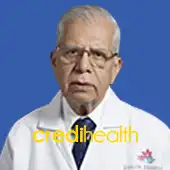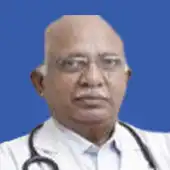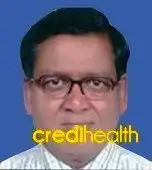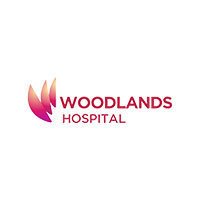Rapid heartbeat, also known as tachycardia, is characterized by a heart rate exceeding 100 beats per minute. Various factors include stress, anxiety, certain medications, and underlying medical conditions such as anemia or thyroid disorders. In some cases, the rapid heartbeat may be a symptom of a more serious condition.
| Causes | Arrhythmias, Anemia, Electrolyte imbalance, Thyroid Disorders |
|---|---|
| Remedies | Lifestyle Changes, Avoid Triggers, Avoid alcohol |
| Preventive Options | Removing underlying cause, Monitoring heart rate, Unncessary Medications |
| Treatment Options | Medications(Anti-arrhytmic drugs), Electrical conversion, Pacemaker |
| Specialist | Cardiologist |
Sometimes, our hearts beat fast, like running or playing. But sometimes, our hearts beat too fast, even when sitting or resting. This is called a rapid heartbeat. It can be scary, but most of the time, it's not dangerous. Sometimes it happens because we're feeling anxious or stressed or if we've had too much sugar or caffeine. Sometimes it's because of a medical condition like a fever or an overactive thyroid. The doctor will check your heart and make sure everything is okay and might give you medicine to help if you need it.

Rapid heartbeat, or tachycardia, can have a variety of symptoms, some of which may include in the following.
There are several types of rapid heartbeats, or tachycardia, each with its own causes and characteristics. Some of the most common types include the following.
This is a normal response of the heart to certain stimuli such as exercise, stress, or fever. It's a rapid heart rate that originates from the sinoatrial (SA) node, the heart's natural pacemaker.
This irregular heartbeat originates from the atria, the heart's upper chambers. It can cause a rapid heartbeat, fluttering sensation, or skipped beats.
These are episodes of rapid heart rate that originate from the heart's upper chambers. They can cause a rapid heartbeat or fluttering sensation.
This rapid heart rate originates from the lower chambers of the heart (ventricles) and can be life-threatening if sustained. This occurs when a person is having a heart attack or may include a few disease conditions.
Many medical conditions cause rapid heartbeat. This mainly diagnoses as tachycardia. In many conditions, doctors advise monitoring the heartbeat and advising the patient to admit to the hospital. All these conditions are given in the following.
Heart disease results in coronary artery disease, blockage, arrhythmias, and many more. All these conditions, especially heart conditions, resulting in tachycardia.
Abnormal heart rhythms such as atrial fibrillation, supraventricular tachycardia, or ventricular tachycardia can cause tachycardia.
An overactive thyroid can cause tachycardia due to an increase in heart rate. As we have mentioned above, hyperthyroidism is also one of the factors for rapid heart rate.
Abnormal levels of minerals such as potassium, magnesium, or calcium in the blood can cause tachycardia.
The Wolff-Parkinson-White has an additional pathway for signaling upper and lower chambers. This results in a fast heartbeat. This could be present at birth. This is quite a rare condition.
The diagnosis of a rapid heartbeat, or tachycardia, typically begins with a physical examination and a review of the patient's symptoms and medical history.
Treatment for the rapid heartbeat, or tachycardia, typically depends upon the underlying condition. Some general treatment options are mentioned down below.
Some many options and medications normalize the rapid heartbeat or tachycardia. Let's check out what these medications are, which help the patient to reduce critical symptoms. These include the following.
These medications slow down the heart rate by blocking the effects of certain hormones on the heart. Examples include propranolol and metoprolol.
These medications also slow down the heart rate by relaxing the muscles in the heart and blood vessels. Examples include verapamil and diltiazem.
These medications treat specific types of tachycardia, such as atrial fibrillation. Examples include amiodarone and flecainide.
This medication is to treat certain types of tachycardia, such as atrial fibrillation. It helps to slow down the heart rate and improve the strength of the heart's contractions.
This medication is used to treat paroxysmal supraventricular tachycardia (PSVT), and it works by slowing down the electrical activity in the heart.
These medications are used to dilate the blood vessels and help to lower the heart rate.
This procedure uses electrical shocks to restore a normal heart rhythm. It uses a machine and sensor that delivers the shock to the chest.
This procedure uses a catheter to destroy small areas of the heart tissue, causing an abnormal heart rhythm.
Surgery may be an option for treating certain types of rapid heartbeat or tachycardia caused by structural problems within the heart. Some examples of surgical procedures that may be used to treat tachycardia include the following.
This procedure uses heat or cold to destroy small areas of heart tissue, causing abnormal electrical signals causing tachycardia. This can be done through a catheter or during open-heart surgery.
This procedure is used to treat atrial fibrillation. It involves creating a series of small cuts in the atria to create a "maze" of scar tissue that helps restore heart electrical activity.
This procedure involves surgically implanting a small device under the skin of the chest that sends electrical signals to the heart to help regulate the heart rate.
In some cases, tachycardia can be caused by a problem with one or more of the heart's valves. Surgery to repair or replace these valves may be necessary to treat tachycardia.
This procedure treats some kinds of tachycardia, such as atrial fibrillation, by destroying the AV node. It is where the electrical connection between the atria and the ventricles. This procedure is performed with a catheter or with open-heart surgery.
Several home remedies may help to reduce a rapid heart rate or tachycardia in the following.
Taking slow, deep breaths can help to slow down your heart rate. Try taking a deep breath through your nose, holding it for a few seconds, and then exhaling slowly through your mouth.
Techniques such as meditation, yoga, or progressive muscle relaxation can help to reduce stress and anxiety, which can be a common cause of tachycardia.
Dehydration can cause the heart to work harder, so drinking plenty of water is essential. Aim for 8-10 glasses of water per day.
If you know that certain foods, drinks, or activities trigger your tachycardia, try to avoid them. Common triggers include caffeine, alcohol, tobacco, and stress.
The cold compress on the forehead or neck can help to slow down your heart rate.
Regular physical activity can help to improve your heart health and lower your heart rate. Aim for at least 30 minutes of moderate exercise.
Ensure to get enough sleep, as lack of sleep can cause a rapid heartbeat.
These devices may be implanted in patients with certain types of tachycardia to help regulate their heart rhythm.
Preventive measures for the rapid heartbeat, or tachycardia, include the following.
If you have a chronic condition, you must talk with your healthcare professional to manage the condition and prevent tachycardia.
Eating a healthy diet, regular exercise, avoiding smoking, limiting alcohol and caffeine intake, and getting enough sleep can help to prevent tachycardia.
If you know that certain things trigger your tachycardia, such as stress, certain foods, or medications, try to avoid them.
If you're experiencing tachycardia, you can use a heart rate monitor to track the heart's rhythm and bring the information to your healthcare professional.
If taking medications that may cause tachycardia, speak with your healthcare professional about adjusting the dosage or switching to a different medication.
It's a good idea to see a healthcare professional if you have persistent or recurrent rapid heartbeat or if you experience any of the following symptoms:
If you have rapid heartbeat and are concerned about your health, it is important to seek immediate medical attention from a qualified rapid heartbeat doctor. A doctor specializing in treating rapid heartbeat, such as a Cardiologist, would be the right health professional to consult.
Here is a list of Top verified doctors for rapid heartbeat. You can book an appointment with one to start your rapid heartbeat treatment today.

Jaslok Hospital, Mumbai
Rs. 2,500 Consult Fees

CARE Hospital, Banjara Hills, Hyderabad
Rs. 1,000 Consult Fees

Indraprastha Apollo Hospital, Sarita Vihar, Delhi NCR
Rs. 1,800 Consult Fees
A hospital can provide various services to help diagnose and treat your rapid heartbeat. If you are experiencing rapid heartbeat In that case, it is important to visit a rapid heartbeat hospital for a proper diagnosis and treatment plan.
Check a list of Top Hospitals for rapid heartbeat treatment.
Multi Speciality Hospital
Established in 1918
🛌345 Beds
.png)
Multi Speciality Hospital
Established in 1940
🛌220 Beds

Multi Speciality Hospital
Established in 1947
🛌230 Beds
Frequently asked questions and answers about rapid heartbeat.
Is a rapid heartbeat serious?
A rapid heartbeat can be a symptom of a serious condition, but it is not always serious. It's always best to consult a healthcare professional if you have persistent or recurrent rapid heartbeat or if you have other symptoms that concern you.
What is a dangerously fast heart rate?
A dangerously fast heart rate, also known as tachycardia, is generally defined as a heart rate greater than 100 beats per minute. However, the specific heart rate considered dangerous can depend on various factors such as age, health status, and underlying medical conditions.
What causes a rapid heartbeat?
A rapid heartbeat can be caused by a variety of factors such as underlying medical conditions, medications, stress, caffeine or alcohol consumption, or electrolyte imbalances.
How do you calm a racing heart?
There are several ways to calm a racing heart, including practicing deep breathing exercises, engaging in relaxation techniques such as yoga or meditation, taking a cold shower or splashing cold water on your face, drinking water or other non-caffeinated beverages, and performing physical activities like walking or jogging.
Can rapid heartbeat be prevented?
In most cases, rapid heartbeat can be prevented by addressing the underlying cause and making lifestyle changes such as managing stress, avoiding certain medications, and staying active.
What causes rapid heartbeat?
Rapid heartbeat or tachycardia can be caused by various factors such as stress, anxiety, physical exertion, dehydration, certain medications, hormonal changes, underlying medical conditions like heart disease, or consuming stimulants like caffeine or nicotine. In some cases, tachycardia may be a symptom of a serious medical condition, and it is important to consult a healthcare professional if you experience persistent or severe rapid heartbeat.
Reviews by patients on different.
Anandita
My father went for a health check up alone at Kokilaben hospital. He was doing stess test and he developed Anterior wall Myocardial infarction (Major heart attack). Thanks to immediate attention by Dr. Pravin Kahale and his team who took my father immediately for Emergency angioplasty even though we were at home. In a heart attack, every minute delay leads to damage to heart muscle and has long term consequences of a weak heart. My father had good salvage and early prompt action lead to preserve heart pumping. Dr. Kahale is an excellent doctor. He has very deep knowledge. He writes few but best medications. He also makes us understand complex things in simple language. Our entire family would strongly recommend Dr. Kahale as a cardiolgist who can deliver the best in most complex cardiac issues. He is always accessible to the entire family and is only a phone call/ message away and resolves all the queries. Highly recommended!
Ishwar Devi
Artemis Hospital
<p>My mother had a bad chest pain the other day. We decided to get her regular checkup done and approached Credihealth for the same. After a couple of options, we decided to visit Artemis. The overall process was very smooth. The ECG had some abnormality. So we consulted Dr Kuldeep Arora for it. He is one gem of a doctor. He was very friendly to talk to. Very sensitive to my mothers concerns. He explained all the medical reports including ECG. We gained immediate confidence in the doctor. He advised a few additional tests. Those were done on same day. After seeing those reports, he proposed a treatment plan. Considering my mothers age, it was empathetic for him to tell no to any procedure. He recommended meds for 2 months and told us to come back in between. Friendly, sensitive and empathetic. All in all good experience.</p>
Dr. Bhabendra Nath Kalita
Dr. Venkatesh treated my dad with utmost care. Although my dad & his reports were not in station, he eagerly looked into the Angiogram video (done in a different place) of my father in my mobile and suggesting corrective treatments. He patiently advised me many things and repeated them again & again for my better understanding. The operation was done by Dr. Girish and although it was critical, it was successful. Dr. Venkatesh has visited us many times during our stay at the hospital despite his busy schedule to inquire about the wellbeing of my father. During the follow-up visits, Dr. Venkatesh has examined my Dad with utmost details, gave proper advice, and suggested & changed medicine courses to suit my dad's body as he has high blood pressure & diabetics. I wish him great success in his career and love of his patients.
Credihealth is an online healthcare portal for all your hospital appointments, diagnostic test bookings, ordering medications, or homecare services. If you have any inquiries, our in-house medical experts can help solve them and guide you to the best specialist in the India.